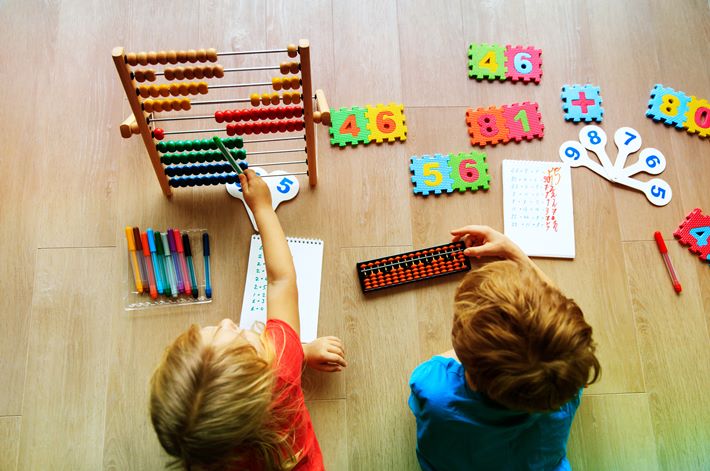Math skills taught during preschool education are specifically designed to provide children the solid foundation they require to succeed in elementary school and later in their life as well. It’s important that educators craft lessons around various basic skills that become the stepping stones to advanced math in high school and in college too. Setting a base for life skills in later life should start from preschool.
Math Skills For Pre-schoolers
Pre-schoolers should be introduced to simple mathematical concepts. When they are taught basic terminology at that young age, it helps them apply math concepts in a better way in a classroom setting. Since the children already have an understanding of the concepts, elementary teachers can then focus on helping the students apply those ideas.
While pre-schoolers might not yet be entirely ready to learn various math skills, they can gain some idea of the concepts through practice and language. Some basic math skills the children can develop include:
#1 Number Sense
This involves number basics and is the main math skill children need to develop before moving into kindergarten. They need to learn how to count forwards & backwards very early in childhood. This becomes the base for them to learn the relationships between numbers when they move into higher grades.
Number sense is a crucial skill that preschool educators should focus on teaching the children before they reach kindergarten. This focus on number sense helps children develop a better understanding of advanced calculations and math concepts.
#2 Learning Numbers Via Pictures Or Representation
Children have an innate ability to be naturally visual and can build relationships between represented item and numbers. Using pictures/representation to clarify certain relationships is making the use of mathematics real to the child’s mind. It’s why preschool education should focus on representing numbers using pictures, family members, and items.
For example, educators can use pictures of different fruits to help pre-schoolers learn math basics. This helps them make quicker connections between math skills and the real world, which play a pivotal role in academic success. If they aren’t able to make this connection, it can leave them confused about the things they are learning in the classroom.
#3 Addition And Subtraction
While it’s important that children should learn concepts well before learning skills, teachers can start with basics such as addition and subtraction before the children move to higher grades. These skills will be used constantly in standard childhood interactions. When teachers focus on the basics, they would be able to create stronger math skills foundation for the children’s future.
Preschool teachers can use various examples which surface during play activities to teach children the concepts of addition and subtraction. This is the time teachers can teach skills without actually creating any specific advanced lesson plans that might prove to be too advanced for childhood knowledge and literacy.
#4 Preschool Math Concepts Become The Building Blocks For Higher Education
All the basic math skills that teachers provide to pre-schoolers become the building blocks for the student’s academic career. When children learn simple skills such as math concepts, number sense, and application of ideas like simple addition, they are better prepared to move into further education. Fortunately, children of that age can learn at an amazing rate, and preschool teachers can apply math skills and concepts to normal activities for children.
If you want to know more about math activities for pre-schoolers at Clovel Childcare and Early Learning Centres, don’t hesitate to get in touch with us. Just give us a call at 1300 863 986 or fill in this contact us form.
Thanks for reading,
Clovel Childcare
1300 863 986












